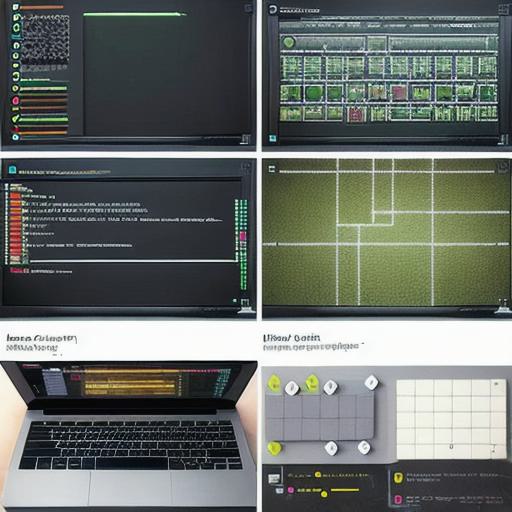Introduction:
Game development is an exciting and rewarding field that offers endless opportunities for creativity and innovation. However, becoming a skilled game developer requires dedication, hard work, and a willingness to learn from others. In this guide, we will share some helpful tips and tricks that can help you improve your game development skills and take your projects to the next level.
-
Learn Programming Fundamentals:
Programming is the foundation of game development. Learning programming fundamentals such as coding languages like C++, Java, Python, or Unity will give you a solid base on which to build your games. There are many online resources available that offer free courses and tutorials for learning programming. Once you have learned the basics, you can move on to more advanced topics such as game engines and tools. -
Use Game Engines:

Game engines like Unity, Unreal Engine, and Godot provide a pre-built environment that allows you to create games without having to build everything from scratch. These engines come with a wide range of features and tools that can help speed up the game development process. Using a game engine can also help you learn new skills and techniques that will make your games more polished and professional. -
Experiment and Iterate:
Game development is an iterative process that involves testing, experimenting, and refining your ideas until they become a fully functional game. It is important to be patient and persistent during this process. Don’t be afraid to make mistakes or take risks. Every iteration will bring new learnings and insights that can help improve your game development skills. -
Collaborate with Other Developers:
Collaboration is an essential part of game development. Working with other developers can provide you with new perspectives, ideas, and feedback on your work. You can also learn from their experiences and expertise. There are many online communities and forums where you can connect with other developers and collaborate on projects. -
Use Real-Life Examples:
Real-life examples can be a great source of inspiration for game development. Studying existing games and analyzing how they were created can help you understand the principles and techniques used in game development. You can also use real-life examples to test your own ideas and get feedback from users. -
Stay Up-to-Date with New Technologies:
Game development is a rapidly evolving field, with new technologies and tools being introduced all the time. It is important to stay up-to-date with these developments to ensure that you are using the latest and most effective tools for your projects. This can involve attending conferences, following industry news, and experimenting with new technologies. -
Practice Consistently:
Consistent practice is key to improving any skill, including game development. Dedicating time each day or week to practicing your skills will help you build momentum and see progress over time. You can also use online challenges or contests to push yourself out of your comfort zone and challenge yourself to create new and innovative games.
Summary:
Game development is a challenging but rewarding field that offers endless opportunities for creativity and innovation. By following these helpful tips and tricks, you can improve your game development skills and take your projects to the next level. Remember to be patient, persistent, and willing to learn from others, and don’t be afraid to experiment and take risks. With dedication and hard work, you can achieve great success in this exciting field.
FAQs:
- What programming languages are commonly used in game development?
C++, Java, Python, Unity, C, JavaScript, and HTML5 are some of the commonly used programming languages in game development. - Which game engines are most popular for game development?
Unity, Unreal Engine, Godot, and Construct are some of the most popular game engines used in game development. - How long does it take to become a proficient game developer?
The time it takes to become proficient in game development can vary depending on your previous experience and the amount of time you dedicate to learning and practicing. It can take anywhere from several months to several years, but with consistent practice and dedication, you can achieve great progress. - Do I need a degree in computer science or a related field to become a game developer?
While a degree in computer science or a related field can be helpful, it is not strictly necessary to become a game developer. Many successful game developers come from a variety of backgrounds and have learned their skills through online courses, tutorials, and self-study.
